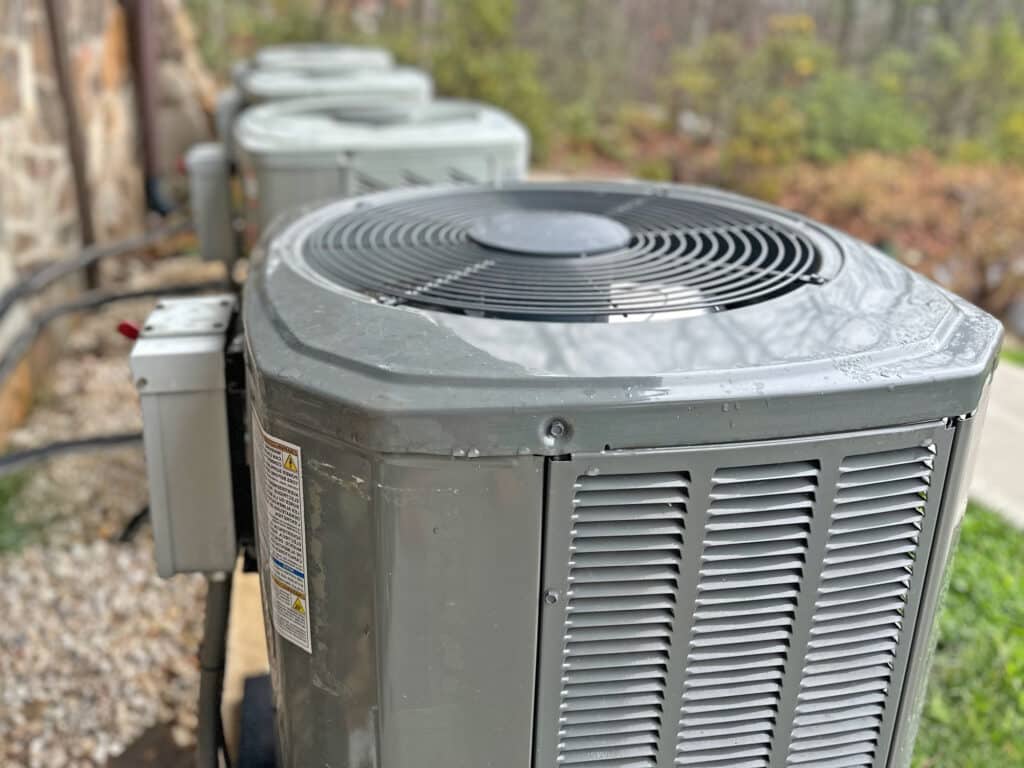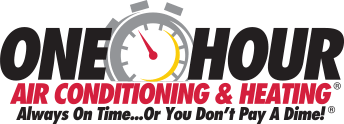
Top HVAC System Upgrades to Enhance Your Home
Are you considering an HVAC system upgrade to improve your home’s comfort and efficiency?
In this guide, we will explore the importance of upgrading your HVAC system, especially for homeowners in Dallas, TX. Upgrading your HVAC system can lead to numerous benefits, including increased energy efficiency, lower utility bills, and enhanced indoor air quality.

Importance of HVAC System Upgrades
Why should you consider upgrading your HVAC system? An HVAC system upgrade is more than just an investment in your home’s comfort—it’s a step towards energy efficiency, cost savings, and environmental responsibility. For homeowners in Dallas, TX, where temperatures can swing dramatically, having a reliable and efficient HVAC system is crucial.
Enhanced Comfort and Air Quality
Upgrading your HVAC system can significantly improve indoor comfort. Newer systems offer better temperature control, reducing hot and cold spots throughout your home. Advanced air filtration systems that come with modern HVAC units also enhance indoor air quality, filtering out allergens, dust, and pollutants. This is particularly beneficial in urban areas like Dallas, where air quality can be a concern.
Energy Efficiency and Cost Savings
One of the most compelling reasons to upgrade your HVAC system is the potential for energy savings. Older systems tend to be less efficient, leading to higher energy bills. Newer HVAC models are designed with energy efficiency in mind, using advanced technologies to consume less power while providing superior performance. In Dallas, where air conditioning is a necessity for much of the year, these savings can be substantial.
Environmental Impact
Upgrading to a more efficient HVAC system can also reduce your home’s carbon footprint. Energy-efficient systems use less electricity, which means fewer greenhouse gas emissions from power plants. For environmentally conscious homeowners in Dallas, this is a significant benefit.
Increased Home Value
An upgraded HVAC system can also boost your home’s resale value. Prospective buyers are often willing to pay a premium for homes with modern, efficient HVAC systems. This is especially true in a hot market like Dallas, where buyers are looking for homes that are move-in ready and equipped with the latest technology.
Benefits for Homeowners in Dallas, TX
Dallas homeowners stand to gain significantly from upgrading their HVAC systems. The unique climate of Dallas, characterized by hot summers and mild winters, demands reliable and efficient HVAC systems to maintain comfortable indoor conditions year-round. Here are some of the key benefits:
Adaptation to Extreme Temperatures
Dallas experiences scorching summers with temperatures often exceeding 100°F. An upgraded HVAC system ensures optimal performance during these peak conditions, providing consistent cooling and reducing the risk of system failures. Advanced HVAC systems are designed to handle high loads more efficiently, ensuring your home remains cool and comfortable even on the hottest days.
Improved Energy Efficiency
Energy efficiency is a major concern for Dallas homeowners, given the high cost of cooling during the summer months.
Modern HVAC systems are equipped with high SEER (Seasonal Energy Efficiency Ratio) ratings, which measure cooling efficiency. Systems with higher SEER ratings consume less energy to cool your home, leading to significant reductions in your monthly utility bills. This efficiency not only saves money but also contributes to environmental sustainability by reducing overall energy consumption.
Enhanced Indoor Air Quality
Air quality is another critical issue in urban areas like Dallas. Upgraded HVAC systems often include advanced air purification technologies that can significantly improve indoor air quality. These systems can filter out pollutants, allergens, and particulate matter, ensuring a healthier living environment. For families with members suffering from allergies or respiratory issues, this improvement can be particularly beneficial.
Noise Reduction
Older HVAC systems can be noisy, creating disturbances and reducing the comfort of your home environment. Newer models are designed to operate more quietly, allowing you to enjoy a peaceful indoor environment. This is especially important in urban settings where external noise can already be a nuisance.
Smart Home Integration
Many modern HVAC systems offer smart home integration features. This allows homeowners to control their HVAC system remotely via smartphone apps, set schedules, and receive maintenance alerts. Such integration ensures that your HVAC unit operates efficiently, reducing waste and optimizing performance based on your daily routines.
Long-term Investment
Investing in an HVAC upgrade is a long-term financial decision. Not only does it provide immediate benefits in terms of comfort and efficiency, but it also increases the value of your home. Potential buyers in Dallas are likely to appreciate a home with a modern, efficient HVAC system, making it a more attractive option in the real estate market.
Assessing Your Current AC System
Before diving into an HVAC system upgrade, it’s essential to assess your current system’s performance and condition. This step helps identify specific issues and determine whether an HVAC system upgrade is necessary.
Signs Your HVAC System Needs an Upgrade
Several indicators suggest it might be time to upgrade your HVAC system:
- Age of the System: Most HVAC systems last between 10 to 15 years. If your system is older than this, it’s likely to operate inefficiently and may soon require costly repairs.
- Frequent Repairs: If you find yourself frequently calling for repairs, it’s a clear sign that your HVAC system is no longer reliable. These repair costs can quickly add up, making an HVAC system upgrade a more economical choice.
- Rising Energy Bills: An unexplained increase in your energy bills can indicate that your HVAC system is losing efficiency. Older systems tend to consume more power to maintain the desired temperature.
- Inconsistent Temperatures: If you notice uneven heating or cooling in different parts of your home, it could be due to an outdated or failing HVAC system.
- Excessive Noise: Unusual noises such as grinding, squealing, or rattling from your HVAC system can signal mechanical issues that might necessitate an HVAC system upgrade.
Common Issues in Outdated Systems
Outdated HVAC systems can suffer from several problems:
- Low Efficiency: Older units typically have lower efficiency ratings, which means they use more energy to achieve the same level of comfort as newer models.
- Refrigerant Issues: Older systems may use outdated refrigerants like R-22, which are being phased out due to environmental concerns. Upgrading to a system that uses more eco-friendly refrigerants can improve efficiency and compliance with regulations.
- Poor Air Quality: Older systems may not effectively filter air, leading to poor indoor air quality. Dust, allergens, and other pollutants can circulate throughout your home, exacerbating health issues.
- Inadequate Features: Newer systems come with advanced features such as programmable thermostats, zoning capabilities, and smart home integration. Older systems lack these enhancements, which can improve comfort and efficiency.’
Evaluating Your Current System
To thoroughly assess your HVAC system, consider hiring a professional HVAC technician. They can perform a detailed inspection, identifying issues that may not be immediately apparent. This evaluation typically includes:
- Efficiency Testing: Measuring the system’s energy consumption relative to its output to determine its SEER rating.
- Leak Detection: Checking for leaks in the ductwork and refrigerant lines that can compromise efficiency.
- Performance Analysis: Assessing the system’s ability to maintain consistent temperatures and humidity levels throughout your home.
- Component Inspection: Examining key components like the compressor, blower motor, and thermostat for signs of wear and tear.

Signs Your HVAC System Needs an Upgrade
Recognizing when your HVAC system needs an upgrade is crucial for maintaining comfort and efficiency in your home. Here are some key signs that it might be time to consider an upgrade:
Age of the System
HVAC systems generally have a lifespan of 10 to 15 years. If your system is nearing or has surpassed this age range, it’s likely less efficient than newer models. Older systems often struggle to maintain optimal performance and may be prone to more frequent breakdowns.
Frequent Repairs
Are you constantly calling for HVAC repairs? Frequent repairs are a clear indicator that your system is on its last legs. Over time, the cost of these repairs can add up, making an HVAC system upgrade a more cost-effective solution in the long run.
Inconsistent Temperatures
Uneven heating or cooling throughout your home is a sign that your HVAC unit is struggling. If some rooms are too hot while others are too cold, it’s likely that your system can no longer distribute air evenly, which can be due to wear and tear or outdated technology.
Rising Energy Bills
A sudden or gradual increase in your energy bills without a corresponding increase in usage is a strong indication that your HVAC system is becoming less efficient. Older systems have to work harder to achieve the same level of comfort, consuming more energy in the process.
Excessive Noise
Unusual noises such as grinding, banging, or rattling coming from your HVAC system can signal mechanical issues. These noises often indicate that parts are wearing out and the system is struggling to function correctly. Newer systems operate more quietly, improving your home’s overall comfort.
Humidity Issues
If you’re experiencing problems with humidity control—either too much or too little—it could be due to an outdated HVAC system. Modern systems are designed to better manage humidity levels, ensuring a more comfortable indoor environment.
Poor Air Quality
Older HVAC systems may not filter air as effectively as newer models, leading to poor indoor air quality. If you notice an increase in dust, allergens, or other pollutants, it might be time to upgrade to a system with advanced air filtration capabilities.
Refrigerant Type
If your system uses R-22 refrigerant (commonly known as Freon), it’s another sign that an HVAC system upgrade is necessary. R-22 is being phased out due to its environmental impact, and replacing it can be expensive. New systems use more environmentally friendly refrigerants that are also more efficient.
Common Issues in Outdated Systems
Outdated HVAC systems can present a variety of problems that affect both comfort and efficiency. Understanding these common issues can help you decide when it’s time to consider an HVAC system upgrade.
Low Energy Efficiency
Older HVAC systems typically have lower energy efficiency ratings compared to modern units. This inefficiency means they consume more energy to produce the same amount of heating or cooling, leading to higher utility bills. Systems installed more than a decade ago likely lack the advanced technology that helps modern systems achieve higher SEER (Seasonal Energy Efficiency Ratio) ratings.
Refrigerant Leaks
Many older HVAC systems use R-22 refrigerant, which is being phased out due to its harmful environmental impact. Refrigerant leaks in these systems not only reduce their efficiency but also contribute to environmental damage. Upgrading to a system that uses more environmentally friendly refrigerants, such as R-410A, can prevent these issues and improve overall performance.
Inconsistent Temperature Control
As HVAC systems age, they often struggle to maintain consistent temperatures throughout the home. You might notice some rooms are much warmer or cooler than others. This inconsistency is typically due to wear and tear on system components, such as the thermostat, compressor, or blower motor, which can no longer operate as effectively as they once did.
Increased Noise Levels
Older HVAC systems can become noisy as components wear out and begin to malfunction. Common noises include banging, rattling, or squealing, which can indicate issues like loose parts, motor problems, or failing compressors. These sounds not only disrupt your home environment but also signal that the system may be nearing the end of its useful life.
Poor Air Quality
Outdated systems often lack advanced air filtration capabilities, leading to poor indoor air quality. Dust, pollen, mold spores, and other allergens can circulate throughout your home, exacerbating allergies and respiratory conditions. Modern HVAC systems come equipped with superior filtration options that can significantly improve indoor air quality.
High Maintenance Costs
The older an HVAC system gets, the more frequent and costly the repairs tend to become. Components like belts, bearings, and motors wear out over time, and finding replacement parts for older models can be difficult and expensive. These ongoing maintenance costs can quickly add up, making a new system a more economical choice in the long run.
Environmental Impact
Outdated HVAC systems are less environmentally friendly due to their higher energy consumption and reliance on phased-out refrigerants. By upgrading to a newer, more efficient system, you can reduce your carbon footprint and contribute to a more sustainable environment.
Inadequate Features
Modern HVAC systems offer a range of features that older systems lack. These include programmable thermostats, zoning capabilities, and integration with smart home technology. These features not only enhance comfort but also improve efficiency and convenience, providing better control over your home environment.
Energy-Efficient HVAC Systems
Investing in an energy-efficient HVAC system is one of the best decisions you can make for your home. These systems are designed to provide superior performance while using less energy, which translates to significant savings on your utility bills and a smaller environmental footprint.
Overview of Energy-Efficient Models
Energy-efficient HVAC systems come in various models, each offering different features and benefits. Some of the most popular energy-efficient models include:
- Variable-Speed Air Conditioners: These systems adjust their speed based on the cooling demand, which allows them to run more efficiently and maintain a consistent temperature.
- Heat Pumps: Modern heat pumps provide both heating and cooling and are known for their high efficiency. They work by transferring heat rather than generating it, making them much more energy-efficient than traditional heating systems.
- Ductless Mini-Splits: These systems offer a flexible solution for homes without ductwork. They provide zoned heating and cooling, which allows you to control the temperature in individual rooms, reducing energy waste.
- Geothermal Heat Pumps: These systems use the earth’s stable underground temperature to heat and cool your home, offering one of the highest levels of efficiency available.
Smart Thermostats and Home Automation
Smart thermostats come with a range of features designed to optimize your HVAC system’s performance:
- Remote Access: Adjust the temperature, set schedules, and receive alerts from anywhere using your smartphone.
- Energy Reports: Monitor your energy usage and receive tips on how to save more energy.
- Learning Capabilities: Some smart thermostats can learn your schedule and preferences over time, automatically adjusting the temperature to match your routines.
- Integration with Other Devices: Smart thermostats can integrate with other smart home devices, such as lighting systems and security systems, to create a seamless home automation experience.
Integration with Home Automation Systems
Home automation systems allow you to control multiple aspects of your home environment from a single interface. Integrating your HVAC system with a home automation system can provide additional benefits:
- Enhanced Comfort: Automate your home’s temperature settings based on your daily schedule, ensuring that your home is always comfortable when you arrive.
- Improved Efficiency: Coordinate your HVAC system with other smart devices to optimize energy use. For example, your smart thermostat can work with smart blinds to adjust based on the time of day and the amount of sunlight entering your home.
- Convenience: Control your entire home environment with a single app, making it easy to manage your HVAC system alongside other smart home features.
Frequently Asked Questions
-
How often should I upgrade my HVAC system?
Most HVAC systems should be upgraded every 10-15 years. If your system requires frequent repairs or shows signs of inefficiency, it might be time to consider upgrading sooner.
-
What are the benefits of a smart thermostat?
Smart thermostats offer remote control, energy reports, learning capabilities, and integration with other smart home devices. They enhance comfort and efficiency by automatically adjusting the temperature based on your schedule.
-
How can an energy-efficient HVAC system save me money?
Energy-efficient systems consume less electricity, resulting in lower utility bills. They also tend to have fewer maintenance issues and a longer lifespan, reducing overall costs.
-
What are the signs that my HVAC system needs an upgrade?
Common signs include inconsistent temperatures, rising energy bills, frequent repairs, excessive noise, and poor air quality. If your system is over 10 years old, it may also be time for an upgrade.
-
Can upgrading my HVAC system improve indoor air quality?
Yes, modern HVAC systems come with advanced air filtration capabilities that can significantly improve indoor air quality by removing dust, allergens, and other pollutants.
Whether you opt for a variable-speed air conditioner, a modern heat pump, or a smart thermostat, these HVAC system upgrades can ensure your home remains comfortable and energy-efficient for years to come.







